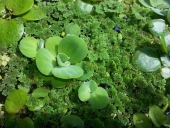So I've been doing some research on different ways to
compost human waste. I'm homesteading and I've been keeping the waste in buckets till I found a good solution to deal with it.
last night I started to research the black soldier fly. It looks like all I need to do is provide a bin for the waste to go into and they will eat it up in no time! I was thinking of having them self harvest into the chicken coop, then I wouldn't have to touch them at all once the cycle is going. I was thinking of making 2 ramps, one big one going into the chicken coop and another smaller one going into an area where they can become fly's and lay more eggs.
I have a few questions,
1. It looks like they need to be kept at higher temps during winter, does anyone have any ideas on how to do this? I was thinking of moving the colony into a greenhouse over the winter, but I plan on venting my rocket mass heater into the greenhouse and I don't know how the high CO2 levels will effect them, any ideas?
2. I mix in Pete Moss with my human waste, is this okay for the black soldier fly?
3. Can I have a bin that is just human waste or should I mix other materials in with it?
4. Is it safe to allow the chickens to eat the soldier fly larvae that have been eating human waste?











